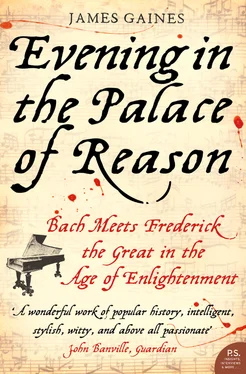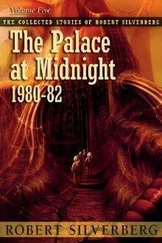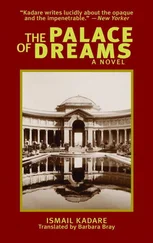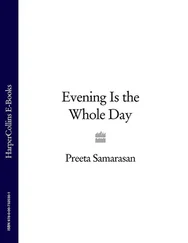II.
BIOGRAPHY OF A TEMPERAMENT
J. S. BACH WAS THE FIFTEENTH PERSON TO BE NAMED Johann in his family. Seven of his uncles were Johanns, his father was Johann, and his great-grandfather was Johann. Four of his five brothers were Johanns, the other was for some reason named Johannes, and there was a sister Johanna. As his parents must have done, if only for their sanity, we will call him Sebastian.
There had never been a Sebastian in the Bach family. The name belonged to one of his godfathers, who was the town piper of Gotha. On March 23, 1685, Sebastian Nagel had the honor of holding his two-day-old namesake at the baptismal font of St. George’s Church on the market square in Eisenach, a walled, many-spired town that like Gotha was tucked away in the thick forest of Thuringia. The rector of St. George’s Latin School, a friend of the family, performed the rite.
Nagel had a professional as well as personal relationship with Sebastian’s father, Ambrosius Bach, who was the town piper here in Eisenach: They helped each other musically on occasion, and they had common roots in nearby Gotha. The Bachs had been there for as long as any of them knew. The first Bach to make music his profession had learned his trade from the town piper of Gotha a hundred years before this (though he had kept his day job running his father’s bakery as well). Since then there had been Bachs in nearly all the courts, organ lofts, and town bands of Thuringia.
We do not know whether or not there was music at Sebastian’s christening, but given that it took place on a Saturday, when church musicians were off, it could have been supplied by all sorts of people: His “uncle” Christoph (actually a second cousin) was the organist at St. George’s; his father had not only the members of his band to choose from but even closer to hand all the assistants and journeymen who lived under his roof; and Sebastian Nagel might even have brought some of his musicians from Gotha. Professional musicians were brethren in the late seventeenth century, banded together in part by their campaign against the “beer-fiddlers” (i.e., “will play for beer”) who were forever trying to undercut their prices for playing funerals and weddings, fees that were more than incidental to their salaries. The guild worked as well to protect its members’ ability to bring sons into the business, as Ambrosius Bach managed to do with all of his Johanns, eventually including Sebastian. Even at St. George’s baptismal fount, Johann Sebastian Bach was being held in the arms of his future.

HE GREW UP also in the embrace of the Wartburg, a dark, imposing castle on a hill that had already been looming over Eisenach and St. George’s for five hundred years. Monument to an earlier, glorious era of German knighthood, it was more recently, like Eisenach itself, at the core of Lutheran myth and history. In the year that Sebastian Bach was born, the citizens of Eisenach did not care, if they knew, about Newton’s discovery of gravity, not to mention Brahe’s new star or Boyle’s air pump, which were right now turning the orderly, Aristotelian world of the past few thousand years on its ear. But the story of Luther’s time in Eisenach almost two hundred years before—he had attended St. George’s Latin School, sung in its choir, preached from this very pulpit before his climactic appearance at the inquisitorial convocation of imperial princes in 1521 that came to be known as the Diet of Worms—was alive among them. So was the infamous edict that the emperor, in the name of the Diet, had issued against Luther, which set the stage for so much heartbreak and bloodshed:
He has sullied marriage, disparaged confession and denied the body and blood of Our Lord. He makes the sacraments depend on the faith of the recipient. He is pagan in his denial of free will. This devil in the habit of a monk has brought together ancient errors into one stinking puddle … Luther is to be regarded as a convicted heretic … No one is to harbor him. His followers also are to be condemned. His books are to be eradicated from the memory of man … Where you can get him, seize him and overpower him [and] send him to us under tightest security.
It was widely believed that Luther had been murdered on his way back to Thuringia from Worms, but fortunately for Luther, by this time the power of the emperor was not what it used to be. The Holy Roman Empire was a remnant, theoretically comprising the greater part of Europe but actually confined largely to modern-day Austria, Hungary, the Czech Republic, the former Yugoslavia, and Germany—except that there was no Germany; there were just hundreds of independent princedoms, dukedoms, and bishoprics, the largest of which were Brandenburg (later to become the seat of Prussia) and Saxony. The imperial electors in particular—the most powerful Germanic princes, who had been given the right to elect the emperor—had as much freedom as they dared to take, absolute rulers in their own domains.
Still, Luther’s elector, Frederick III of Saxony, “Frederick the Wise,” took more liberty than any of the others would have done in Luther’s case: He ordered that Luther be closely guarded after the Diet ruled against him and that he be taken into hiding at the Wartburg. There, costumed as a knight and camouflaged by a long black beard, Luther spent the better part of a year: long months of insomniac nights spent beating back satanic visitations in the form of bats careening about his bedchamber, and days spent teaching himself Greek and writing his world-shifting German translation of the New Testament. In this part of the world, Luther was a great deal more compelling than gravity.
In contrast to the precision and rigor of his theology, the world inhabited by Martin Luther, and even the world of Sebastian Bach, was inhabited by wood nymphs, mermaids, and goblins, which had lived in the lakes, forests, minds, and hearts of Thuringia for centuries. Luther’s mother believed that evil spirits stole food from her kitchen. Luther himself told the story of a lake near his home into which, “if a stone be thrown, tempests will arise over the whole region, because the waters are the abode of captive demons.” Thuringians were famous for being superstitious, though of course they were not alone in that, only somewhat extreme examples. Combined with the desperate fear of God and therefore of hell, rampant superstition helps to explain the credulity of sixteenth-century Christians in Europe—or, to put it more charitably, their great capacity for the suspension of disbelief.
Every year on the eve of All Saints’ Day, in a display that in retrospect seems appropriate for Halloween, Frederick the Wise put his relics on display for his people. Over the years he had accumulated a collection rivaled only by Rome’s. Among his many thousands of sacred mementos were a piece of straw from the manger, three pieces of myrrh from the wise men, a strand of Jesus’ beard, one of the nails driven into His hands, a piece of bread left over from the Last Supper, and a branch of Moses’ burning bush. There were also nineteen thousand holy bones. The most potent piece in the collection was a thorn from the crown of Christ that was certified to have drawn His blood. Visiting these particular relics on this particular day would move the pope to grant you or your favorite departed loved one an “indulgence” good for the suspension of exactly 1,902,202 years and 270 days in purgatory. Of course, there was a certain financial price associated with such largesse, but who could possibly resist the argument of a man like Johannes Tetzel, personal pitchman for the Cardinal of Mainz (a Hohenzollern ancestor of Frederick the Great, incidentally, but we will come to that), who was completely without shame in parting the faithful from their ducats. “[Whoever] has put alms in the box … will have all his sins forgiven,” he pleaded,
Читать дальше













